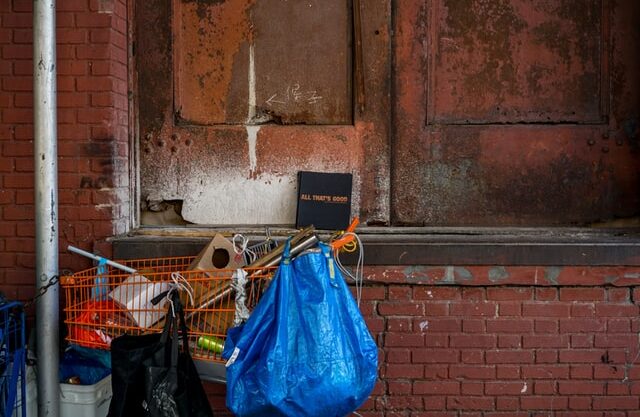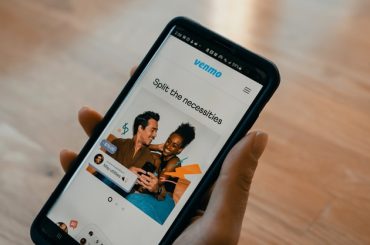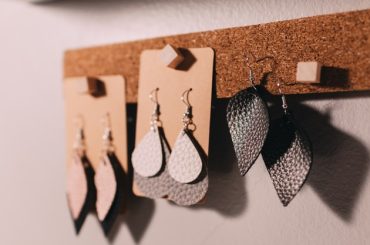Much before paper bags became common at supermarkets and medical stores, there was one product category that always came oddly wrapped in 2 layers of packaging. The first being a handmade newspaper pouch and the second being the outer plastic bag.
Just to be clear, the paper pouch was not to give an impetus to sustainable shopping behavior. No! It was in fact to hide the product and save embarrassment to the one who would be carrying the product outside the shop. Any hunches and guesses about the product?
Menstruation in India has long been a taboo and menstrual hygiene products have been long exchanged in a hush-hush. Whether it be carrying period products to a public washroom or making a feminine hygiene product purchase at a supermarket, there has been shame and stigma attached to the act. But, the stigma around menstruation has not been limited to sanitary products. It in fact runs across the things a woman does, the clothes she wears, and the food she eats too.
So what can people, institutions, or brands do about this? The answer is simple. Shoulder the burden. Open a discussion. Take a Stand. Untaboo the taboo.
And, that’s what a menstrual product brand did. Whisper, a Proctor & Gamble feminine care brand has been amongst the first few brands that through its forward-thinking marketing campaigns brought the hidden taboos and prejudices related to menstruation to the forefront, nudged an open discussion, and touched several lives in the process.
The Starting Point
IPSOS, the research partner for Procter & Gamble’s sanitary napkin brand Whisper carried out a survey of 1,105 women and 202 men across 10 cities. The survey sample consisted of women in the age band of 13 to 49, living in SEC A and B cities of India. The insights from the survey brought to light a few shocking facts that later became the recipe for brand success.
As published in AdAge, the survey revealed, that 50 percent of urban Indian women confirmed that during their period they behaved differently and followed age-old practices. Such behaviors would range from washing their hair only after the fourth day, not watering plants during periods, or even touching pickle jars.
The survey also showcased regional variations in behaviors and practices. Approximately, 70 percent of women from Northern India felt that they should not touch pickles during their periods. In the western part of India, period taboos also restricted women from setting curd, sharing a room with husbands, or touching the masala box. In the East, more than behavior, it was a social embarrassment that came into play while buying sanitary products, both for women and men.
The Winning Strategy
The shocking results from the survey conducted in India became an inspiration board for both the brand team as well as its creative partner, BBDO India. Josy Paul who headed BBDO India was quite surprised to know about the prejudices that existed in society and affected women, even in educated sections.
The consumer truth, therefore, was that women across the country lived a restricted life during their periods. And, Whisper’s superior quality products could let them live an unrestrained life. Thus, Whisper’s “Touch The Pickle” was a taboo-based marketing campaign created right at an intersection of consumer and product truth.
This taboo-based marketing campaign became one of the most successful omnichannel campaigns that went onto receive many accolades.
The first phase of the campaign brought Kalki Koechlin and Neha Dhupia onboard for the campaign. With RJ Mallishka conducting radio shows, the campaign nudged the public to discuss the topic of period taboos. News channels participated in the discussions. And social media influencers sparked many conversations.
In the second phase, the brand film was launched on TV and digital platforms and sustained with print media ads.
The film oozes confidence and joy. It brings out the flavor of womanhood and a zest for an unrestrained life. The film puts a smile on your face as you watch an active teenage girl courageously touching a pickle jar and proclaiming “I touched the pickle jar”. A voice-over directed at girls says, “Girls, let’s make the taboos go away and touch the pickle jar. Take a look at the brand film here.
In the third leg of the campaign, Madison PR created innovative photo opportunities and live events to extend the reach of the campaigns. In this marketing campaign, women from different sections of the society came forward to share period taboo stories. Anthropologists were brought on board to talk about the history of such taboos. Influencers such as Menstrupedia’s founder Aditi Gupta delivered TedTalk to spread the message too.
The Impact
As published in Afaqs, Whisper’s “Touch the Pickle” campaign saw direct participation from 2.9 million women. The film received over 1.9 million true views on YouTube. The press events in the top four markets, features, and authored columns garnered earned media worth USD 6.1 million and 1,200 million earned impressions. The campaign received exposure across Tier-1 Indian media with strong global interest from BBC, FT, Reuters, and Wall Street Journal. Whisper’s share of voice grew from 21% to 91% in its category.
Procter & Gamble also ended up winning the prestigious Grand Prix for the inaugural Glass Lions for the gender-equality category at the Cannes Lions International Festival of Creativity for BBDO India’s “Touch the Pickle” campaign.
Cindy Gallop, the president of the first Glass Lions jury, said, “We were laser-focused on work that challenges and shatters gender stereotypes and has the power to effect true cultural change. What made the [Grand Prix] decision unanimous was that we have in ‘Touch the Pickle,’ a campaign that takes on the challenges of a huge gender issue … in a very open and disruptive way … and is humorous and engaging.”
Conclusion
Today, there are many more brands such as Sofy and Stayfree who have taken a new approach to advertise period products. Mainline actors have come forward to endorse not only brands and campaigns focused on feminine hygiene products but also successful movies.
But, in my opinion, the real benefit of the campaign has been in sparking conversations in the most mundane places such as homes and offices. Because such conversations become the bedrock of social change for tomorrow.
I would like to close this topic by drawing your attention to a movement called The Pad Project. The Pad Project partners with local organizations and grassroots NGOs to fund the placement of pad machines, implement reusable cloth pad-making programs, and run menstrual hygiene management workshops in communities around the world.
The Netflix film “Period. End of Sentence” is based on this project and was screened at multiple film festivals and won many awards. Below is the trailer but the full film is available on Youtube for free. I would urge you to check out this 25 Min documentary on the taboo that prevails in our society related to menstruation.
For more such insightful articles, browse through The Strategy Story or catch up on your reading of other Forward-Thinking Strategies
Also check out our most loved stories below

IKEA- The new master of Glocalization in India?
IKEA is a global giant. But for India the brand modified its business strategies. The adaptation strategy by a global brand is called Glocalization

Why do some companies succeed consistently while others fail?
What is Adjacency Expansion strategy? How Nike has used it over the decades to outperform its competition and venture into segments other than shoes?

Nike doesn’t sell shoes. It sells an idea!!
Nike has built one of the most powerful brands in the world through its benefit based marketing strategy. What is this strategy and how Nike has used it?

Domino’s is not a pizza delivery company. What is it then?
How one step towards digital transformation completely changed the brand perception of Domino’s from a pizza delivery company to a technology company?



















